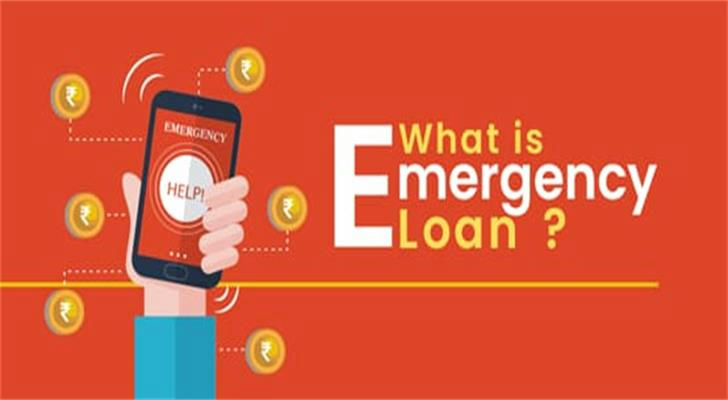German Emergency Loans: Timely Rain or Lifeline?
In an unpredictable economic environment, emergencies may occur at any time, resulting in a break in the capital chain. Emergency loans are a short-term financing solution designed to deal with such emergencies. In Germany, emergency loans are a way for individuals and businesses to quickly obtain funds to relieve temporary economic pressures. This article will explain what emergency loans are, explore their application in Germany, and analyze their impact on individuals and businesses.
Ⅰ. What is an Emergency Loan?
Emergency loans are a short-term financing method designed to provide borrowers with rapid financial support to respond to emergencies such as medical emergencies, natural disasters, unexpected expenses, or capital shortages in business operations. Such loans are usually approved quickly and disbursed quickly, but the interest rate may be relatively high because they are usually accompanied by higher risks.

Ⅱ. Benefits of Emergency Loans
Quick Access to Funds
The biggest advantage of emergency loans is the fast approval and disbursement. Borrowers can obtain the required funds in a short period of time to respond to sudden financial crises such as medical expenses, car repairs, or family emergencies.
Relieve Short-Term Financial Pressure
Emergency loans can help individuals and businesses quickly obtain financial support when facing temporary cash shortages, avoiding greater troubles caused by financial problems, such as late payments, fines, or loss of important resources.
Flexible Repayment Options
Many emergency loans offer flexible repayment plans, allowing borrowers to set a repayment schedule based on their financial situation. This flexibility allows borrowers to better manage their finances and reduce repayment pressure.
No Collateral or Guarantee Required
Some emergency loans do not require collateral or guarantees, which allows those who do not have sufficient assets to obtain loans. This is especially important for individuals or small businesses who are in urgent need of funds but lack collateral.

Maintain Credit Scores
By repaying emergency loans in a timely manner, borrowers can maintain or improve their credit scores. This is very beneficial for applying for other loans or credit products in the future.
Through these benefits, emergency loans not only provide short-term financial support to individuals and businesses but also lay the foundation for their long-term financial health.
Ⅲ. Types and Application Conditions of Emergency Loans in Germany
Personal Emergency Loans
Personal emergency loans are used to respond to emergencies such as medical or home repairs. Application conditions usually include a good credit record, proof of stable income, and proof of emergency needs.
Business Emergency Loans
Business emergency loans focus on short-term liquidity issues of companies, such as supply chain disruptions. Application conditions may include the company's financial statements, business plan, and repayment plan.
Government-Backed Emergency Loans
In special circumstances, the German government may provide emergency loan programs to support affected individuals and businesses. These programs may have more favorable terms and lower interest rates.

Ⅳ. Which Institutions Can Make Emergency Loans?
In Germany, emergency loans can be obtained through the following institutions:
- Commercial Banks: Such as Deutsche Bank and Commerzbank, which provide emergency loan services to individuals and businesses.
- Savings Banks and Cooperative Banks: Savings banks (Sparkasse) and cooperative banks (Volksbank) throughout Germany also provide emergency loans.
- Credit Institutions: German credit institutions such as KfW Bank provide government-backed emergency loans.
- Government Programs: In special circumstances, the German government may provide emergency loans through its Economic Stabilization Fund (WSF).
Ⅴ. Case Analysis

Personal Emergency Loan Case
Berlin residents are facing huge financial pressure due to medical emergencies. He applied for a personal emergency loan from Deutsche Bank, which quickly approved and released the loan to help him solve the problem.
Business Emergency Loan Case
A business in Munich faced a shortage of funds due to supply chain disruptions. The business owner applied for a government-backed emergency loan through KfW Bank and obtained the necessary funds to maintain operations.
Conclusion
Emergency loans are seen as an effective financial tool in Germany that can help individuals and businesses cope with the economic pressures brought about by emergencies. Although emergency loans can provide short-term financial relief, they are not a long-term financial solution. Therefore, applicants should carefully consider their repayment ability and, where possible, seek long-term financial planning and advice.
German financial institutions and the government offer a variety of emergency loan options to meet different needs. These loan products not only reflect the flexibility of the German financial system but also demonstrate its commitment to the well-being of residents and businesses. As the economic environment continues to change, emergency loans will continue to play an important role in Germany's financial safety net. For those in need, understanding these options and taking advantage of them when necessary is key to maintaining financial stability.
